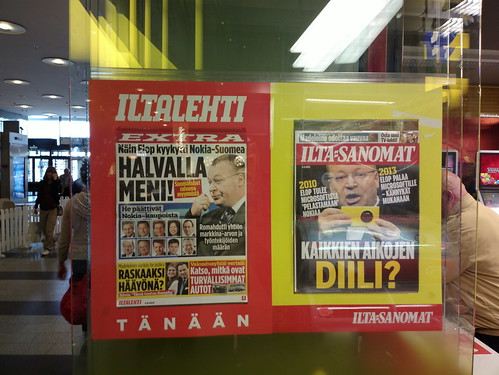My social media streams this morning can be summed up with two German words: schadenfreude & besserwisser. So long and thanks for all the fish, Nokia.
Hang on, those still in the mothership.
My feeds are still full of Nokia-related stuff, and just watched another news broadcast with the story front and centre. Even if towards the end of my tenure it was not great, I can’t do more than feel thankful for the chances, the responsibilities, the crazy projects, the friends all over the place, the first-row seat in a globalised technological business and the memories. Many have said that it was the best business school you could ever have, and I have read of a sense of loss not only in Finland but for the whole of Europe. That’s how important what we built was.
It was not just a workplace: we believed and changed the world. Eventually the world caught up, and they will have to reinvent themselves. I will cheer on Nokians past & present, and will continue cherishing what that experience gave me.


